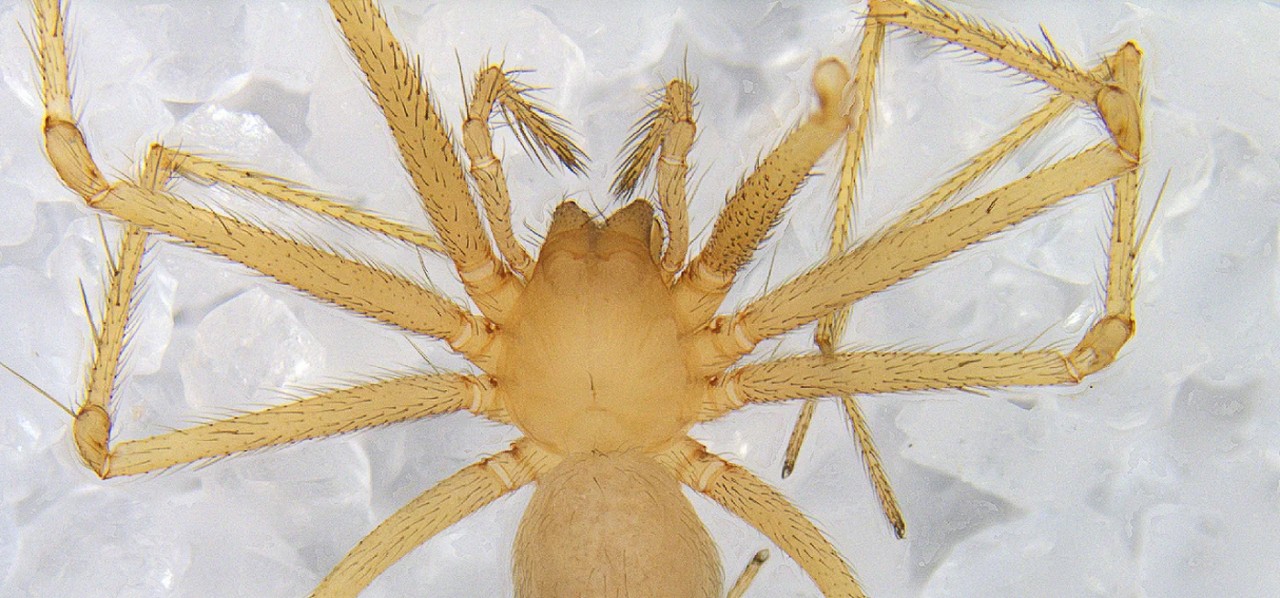
Scientific American: Eyeless spiders can still see light
UC professor explains how cave-dwelling spiders are sensitive to light despite having no eyes
Scientific American turned to a University of Cincinnati professor to help explain how cave-dwelling spiders that have no eyes can still sense light.
Researchers from Hubei University in China found that spiders living deep with caves have lost their eyes altogether similar to the way that blind cave fish have evolved in a world without light.
These eyeless spiders can detect light, perhaps as a defense mechanism so they can remain inconspicuous by moving to the darkest recesses. Researchers found that these sightless spiders retained photoreceptive genes that allowed them to sense changes in light.
UC College of Arts and Sciences Professor Elke Buschbeck studies the vision of spiders, beetles and other invertebrates in her biology lab. Buschbeck, who was not part of the research, told Scientific American that sensing light is fundamental for most living things.
“A lot of organisms can sense light even without eyes,” Buschbeck told Scientific American.
For example, some eyeless crustaceans and blind fish have been observed avoiding light to stay safe in their dark environments. But these cave creatures are not exactly visualizing what’s around them, she said.
“There is an important distinction between sensing changes in ambient light levels and being able to actually see structure in our environment,” Buschbeck says.
The study was published in the journal Science Advances.
Read the Scientific American article.
Featured image at top: An eyeless cave spider can still sense light. Photo/Jie Liu/Hubei University

UC Professor Elke Buschbeck studies animal vision in her biology lab. Photo/Andrew Higley/UC Marketing + Brand
Related Stories
History Department Lecture
January 9, 2002
Lecture by Allan W. Winkler, Miami University, Oxford on "Urban America in World War II: Cincinnati as an example" at the Cincinnati Museum Center at 7:30pm.
UC Research Ranking Climbs
January 10, 2002
The University of Cincinnati moved up in two different national rankings established by the National Science Foundation (NSF) to compare college and university research efforts.
History Department Lecture
January 17, 2002
Lecture by Leslie Adelson, Cornell University, will deliver a Taft lecture titled "Back to the Future and Beyond 'Two Worlds':Turkish Lines of Thought in Contemporary German Literature and Memory Work" at 3:00pm in the Max Kade German Cultural Center in Old Chemistry.
New Appointments in McMicken Administration
January 21, 2002
The college is very pleased to announce two new appointments.
Sign Up for the Discovering A&S Elective
January 24, 2002
Parent's Asking, "What does someone do with THAT major?" Don't know all your options? Sign up for a 2 credit hour elective where you can meet A&S faculty, emeriti faculty, as well as, alumni.
Three of Four UC Fulbrights Scholars from McMicken
January 28, 2002
Tainted water supplies in Bangladesh, international security and missile defense, transformations in Mexico and greater understanding of India - this varied list sums up the work of four Fulbright Scholars at the University of Cincinnati who are concentrating on real-life issues involving our neighbors around the world.
Prominent Line-Up Examines Race in 2002 Ropes Series
January 31, 2002
The issue of race will receive one of the most intensive examinations undertaken in Cincinnati since the April riots when the University of Cincinnati Department of English launches its Ropes series in January and February 2002.
Nominate a Distinguished Alumni
January 31, 2002
The Purpose of the Distinguished Alumni Awards is to recognize graduates of the McMicken College of Arts and Sciences for outstanding achievements.
UC Physicists Play Important Role in Experiments That Provided New Understanding of Neutrinos
January 31, 2002
Three physicists at the University of Cincinnati played a key role in recent experiments which provided a surprising new understanding of a tiny subatomic particle known as the neutrino.
Angelene Jamison-Hall: Publishing Award
February 13, 2002
An unpublished novel by Angelene Jamison-Hall won first place in the new writing contest sponsored by River View Publishing in Riverside, Iowa.
